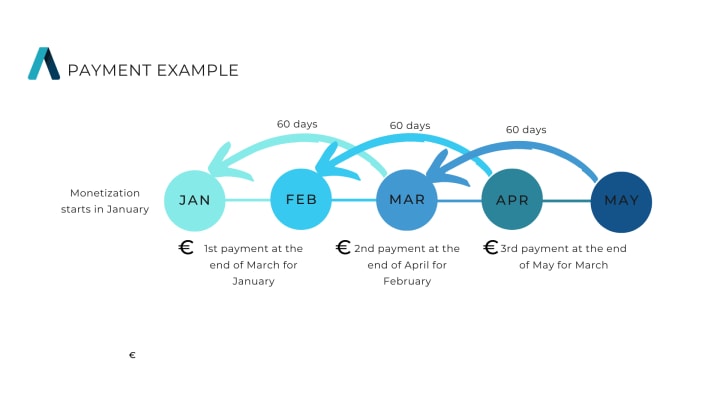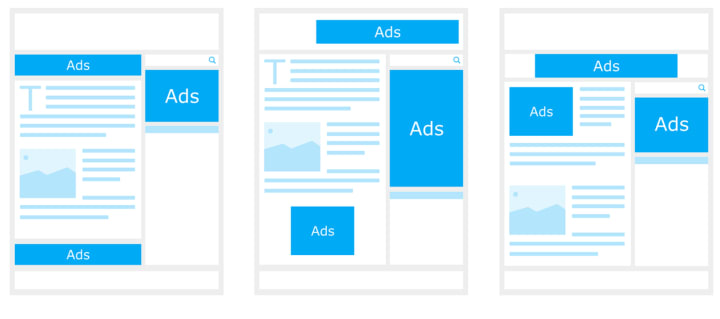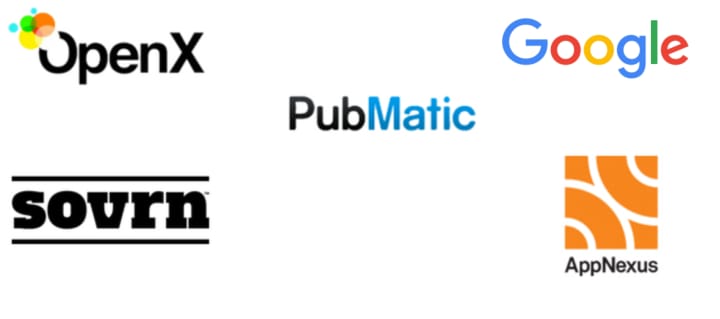6 Questions You Should Ask a Potential Monetization Partner
Almost every header bidding company promises to increase your ad revenue to its maximum potential. But what about other equally important aspects—ad quality, reporting, support, payment model, and demand partners? How do you identify which monetization partner you should choose?

We have compiled six of the most important questions you should be asking potential monetization partners, as well as the answers you should be looking for.
But before we continue with the questions, let's remind the definition of header bidding.
Header bidding is an advanced programmatic technique where publishers offer their ad inventory to multiple ad buyers like Google simultaneously (aka real-time). This technique's main idea is to let various ad buyers bid on the same publisher's ad inventory where the highest bidder wins. This, however, generates more money for the publisher.
1. What is your payment policy and pricing?
Payment Policy
The structure of the payments and the period the header bidding companies would pay differs. That said, it is vital to understand how monetization partners’ payment policies operate to avoid any unexpected additional charges.
Usually, the period for monetization companies to transfer the first payment is after 30 or 60 days; however, in some cases, it can even take as long as 90 days. After the first payment is successfully transferred, the following payments might be made in the next 30, 60, or 90 days. The periods vary between monetization platforms depending on their individual payment terms.
Example:

Pricing Model
Monetization platforms usually work on a revenue-share model. This means that the company deducts a revenue share of around 15-20% of the publisher's total ad revenue.
It's worth keeping in mind that the lowest revenue share is not guaranteed to deliver the best results because there might be additional charges for services, such as support for implementing ad units.
A reliable header bidding company will provide all of the support you need. For example, your partner should contribute by implementing the technology with useful reporting tools, which will allow you to track your earnings.
It's always helpful to ask whether there are any other hidden charges for additional services like implementing ad units on a website that might be applied after you have become a client.
Related Article by Vocal Media: 5 Ways You Can Earn From Vocal Media
2. Do you have an ad refresh, and is it going to be suitable for my site?
Why are ad refreshes so important? The answer is quite simple—the ad refresh technique allows ads to reload without refreshing the page itself. When ads are served, the impressions per session increase alongside ad revenue.

The ad refresh technique is more suitable for websites with:
- a low bounce rate for a page,
- a high average time of each session.
Since users spend quite a lot of time on a page, it increases the chances for an ad to be seen. Websites with high bounce rates should avoid using ad refreshes. They are less effective since users often click away quickly, lowering the probability of seeing the refreshed ad.
According to Adage, there are 3 things you should know about ad refreshes:
- The technique might not be suitable for your website.
- Not all header bidding companies provide an ad refresh option.
- The method should be implemented correctly on a website; otherwise, it can cause a backfire for your site.
Before opting for it, ensure that the ad refreshes will be suitable for your site. Then, understand whether your potential monetization partner's solution is optimized and accurately adhering to Google’s policies.
3. Can we set up a test against my current ad solution?
Almost every monetization partner will promise you the highest results and the best service. It's more than necessary for you to know if there is a possibility to set up a test and compare the results between alternative monetization partners.
To achieve optimal results, it’s essential to distribute the traffic equally.
There are two ways how to do it:
- Set up a 50/50 test on the selected ad placements, so you can later compare companies' performance.
- Run the programmatic ads on the same placement but for a different time period. Just remember, in programmatic, seasonality matters. So it is important to provide equal opportunities to both company solutions.

If you don't provide all of your ad inventory to one header bidding company, you’ll be less likely to see the highest possible results; buyer algorithms aim to find the cheapest channel while competing. After you have set up a test, choose the monetization partner who performed better and then provide access to all of your ad inventory to increase ad revenue.
4. Is it possible to block some domains or categories for my ads?
It should be possible, but the question stands. Do you have to do the work, or will the header bedding company do it for you?
Low-quality ads are a widespread issue on the web, so you want to make sure that untrustworthy advertisers cannot bid on your ad inventory.
To ensure the best user experience on a website, ask about the practices a monetization partner provides. Either there is an already created blocklist to avoid low-quality ads, or you have to create one manually.
You can also question companies about how easy it is to change the blocked categories. For example, based on the domain and the country it belongs to, gambling ads are allowed, while in most countries, they are not.
5. What SSPs do you use?
Ensure that your ad inventory will be provided to the top industry players like Google, Pubmatic, OpenX, AppNexus, and more.

By being added to Google and other supply-side platforms (i.e., premium buyers), you increase your ad revenue even more. More buyers create competition, thus pushing Google to increase their bid prices.
❗Premium buyers equate to quality ads.
As you may have already heard, by adding more and more demand partners, your website's loading speed can be affected. However, that's not entirely true. Today's industry standard is very high. Header bidding companies ensure that your loading speed won't be negatively affected and page latency is reduced by implementing lazy loading on ads, using page latency tools like Google Chrome's extension HeaderBid Expert, and more.
6. How do you monitor the quality of the ads?
Ad quality monitoring should be considered a must to avoid ad fraud. Your monetization partner should protect your ad inventory by blocking low-quality ads from all the buyers by default.
One way to do so is by setting floor prices to exclude ads with a low bidding price around 0.01EUR.
Another method is to implement an already-created blocklist that blocks several categories by default, such as inappropriate or sexual content. Ask your potential monetization partner what practices they utilize to avoid ad fraud and secure your ad inventory and website.
Final Thoughts
Remember, a professional header bidding company will always encourage you to avoid overcrowding your site with too many ads. They will also provide the best ad formats (rich media) for your site that won't harm the user experience, which is crucial for rankings. Google announced that in May 2021, Core Web Vitals will become a search ranking factor, which means that your user experience has to be at its top-notch level.
Examples of Rich Media

The questions we suggested above should assist you in choosing the best monetization partner for your website. Header bidding isn't rocket science, as publishers tend to think. The most essential piece to the ad monetization puzzle is to take your time by doing the necessary research and considering the aspects we’ve recommended.
About the Creator
Agnese Repule
Ethusiastic content marketing specialist at the company Setupad (monetization platform for publishers https://setupad.com/). I write about programmatic advertising, SEO, and content marketing.






Comments
There are no comments for this story
Be the first to respond and start the conversation.